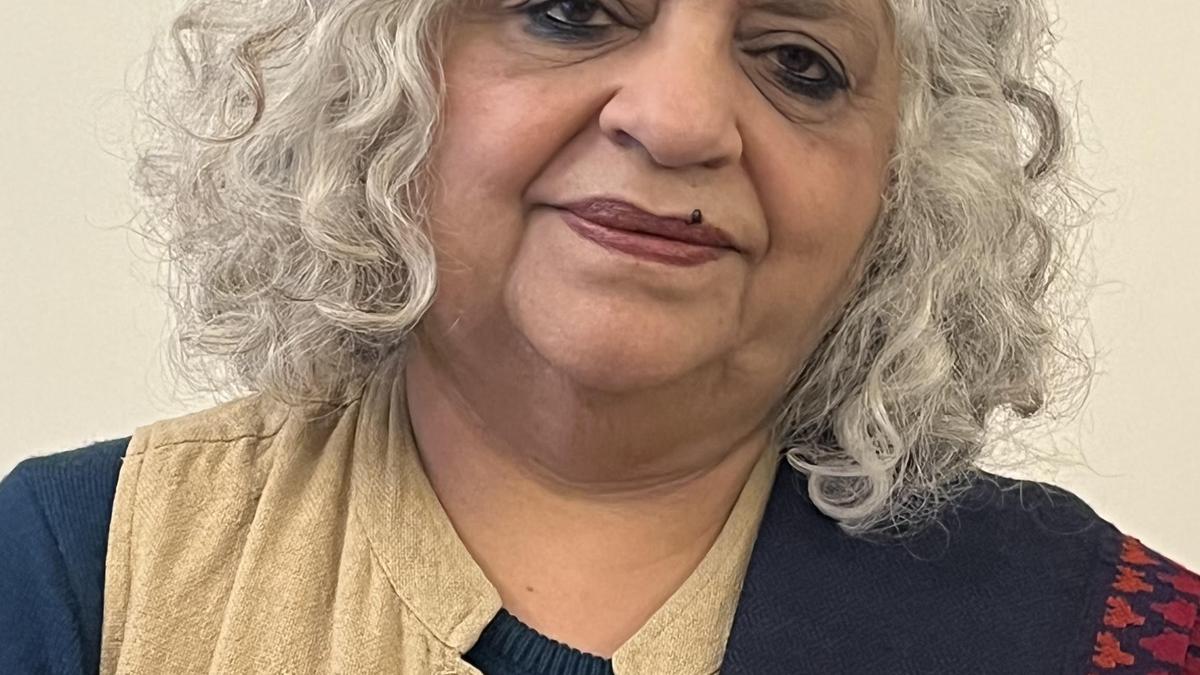
Verse of life
The Hindu
Poet-critic Sukrita revisits her past in her latest book, Salt & Pepper
The hardest thing for any writer is to revisit her works. There is that mortal fear of a missing word, a typological error. Or that sinking feeling that a certain stanza could have been expressed better. As noted poet-critic Sukrita confesses in her latest book, Salt & Pepper: Selected Poems, “A poem may rise and look you in the eye to demand a reworking. As you start engaging with the process, the trajectory leads you to even writing fresh poems rather than carrying on with the selection of older poems. It is complicated.”
But then letting go of the past is easier said than done. As Sukrita says, “Talking about old poems, when I revisited them, it was like reaching out to my past, a return journey to where I started from. Memories played havoc with my mind.”
Talking of her latest collection, Sukrita says, “The notion of linear progress in creative work went for a toss as I sat making a selection of my poems for Salt & Pepper. On revisiting all the books of my poems, from the earliest, Oscillations, to the last one, Vanishing Words, it came home to me that while my life prodded from childhood to middle age, gradually moving into the process of aging, the journey of my poetry was not with a chronological progression. Some of my poems such as ‘Seedlings’ or ‘A Fatal Journey’ from the first book could very well have been written in recent times. On the other hand, some poems in my later collections seemed to merely twiddle their thumbs idly for lack of – shall I say - maturity. I am reminded here of my poem, ‘In the Throes of Time’, published when still green and raw (I see now), published in one of my later collections!”
As Sukrita read through her poems, she noticed that often poems triggered off personal memories. “However, as an objective reader, I was happy to note their impersonal reach. Poems such as ‘Arrival at Paris’ actually got written when Paris seemed to be dodging me. I was merely transiting at the airport though heavy with an ardent wish to visit the city that had produced such fine litterateurs and thinkers who fed into the philosophy of my life. The poem ‘Many a Moment’ and also ‘Voyaging at Ten’ directly relate to the question of my deep existential link with Kenya where I was born.”
With each poem presenting a slice of her life, isn’t the collection like an autobiography? . “To me it seems more like a book of confessions, highly personal from one point of view but then, they are poems because they resonate with others. Or else they would be diary entries rather than poetry. Working with the homeless people in Delhi resulted in a series of short poems that cannot be confined merely to personal memory. One does not reconstruct one‘s life in poetry though I am sure writing does awaken one’s subconscious, maybe even the unconscious wherein there is a repository of the past and the dreams of the future that huddle together in the present.”
With poems emanating from experiences in different cities, Sukrita, says, “Borders and boundaries, especially political, have always been irksome to my consciousness. My interest in crossing borders got accentuated when I was working on a volume of stories called Mapping Memories. It was many years later that I wrote a poem called ‘At Wagah’, included in my select poems now. This poem speaks of the power of love that can cross over the spiked lines of hatred.”
Amidst all this, is she finally happy with her work? “There is always a lurking feeling in a poet that her poem could be made better. The process has to go on, poem after poem, till the inner calling is live and kicking,” Sukrita sums up, precise as ever.











